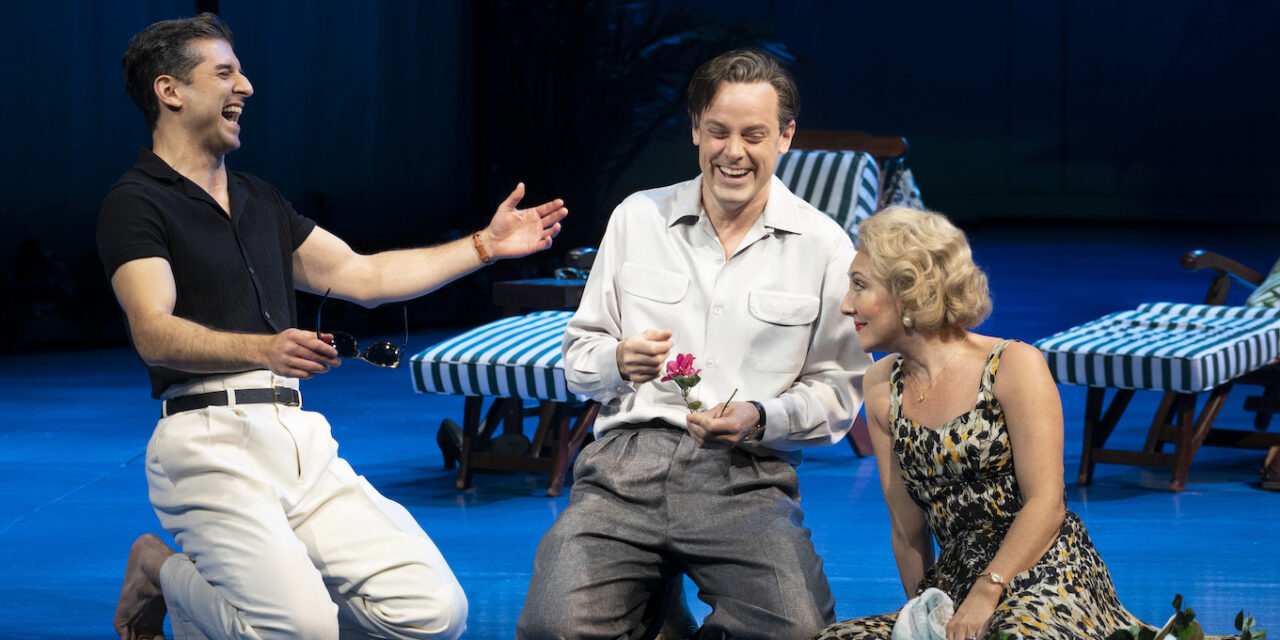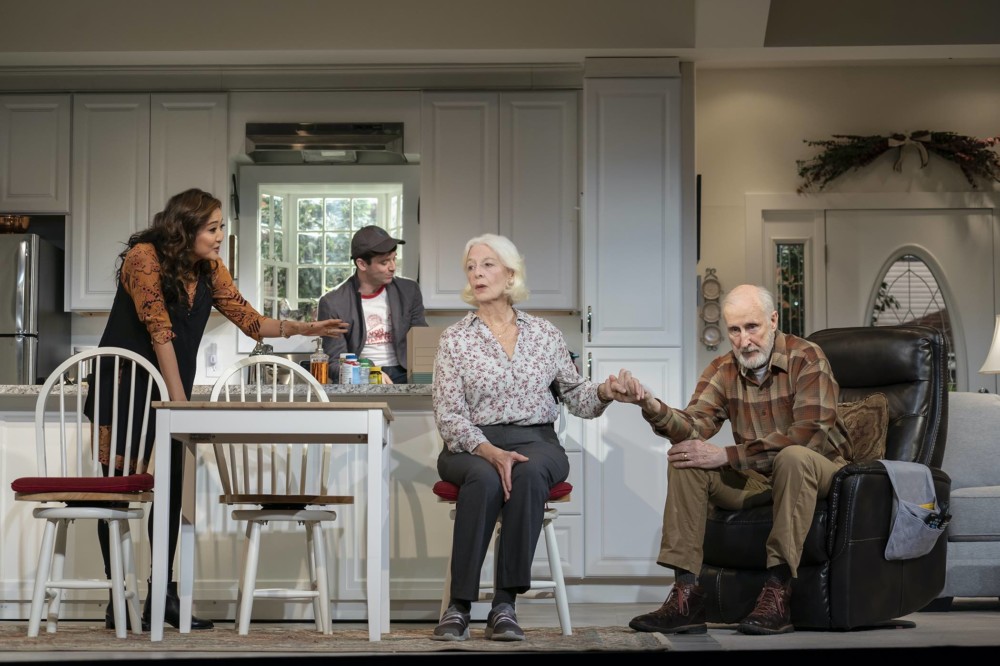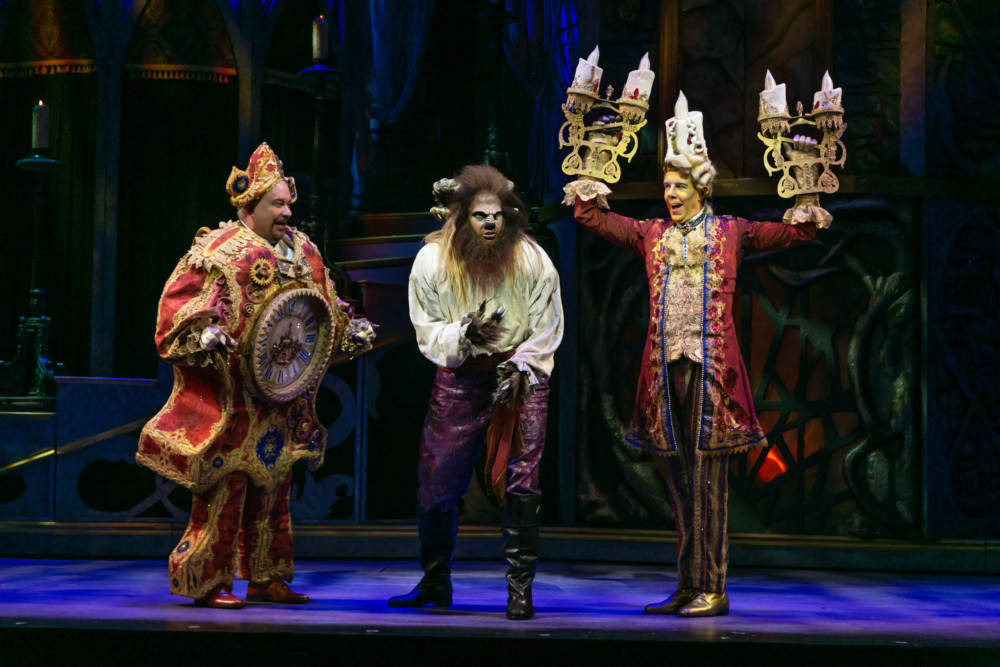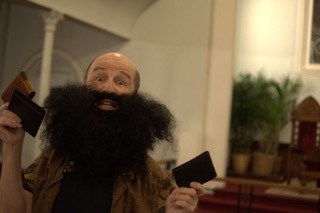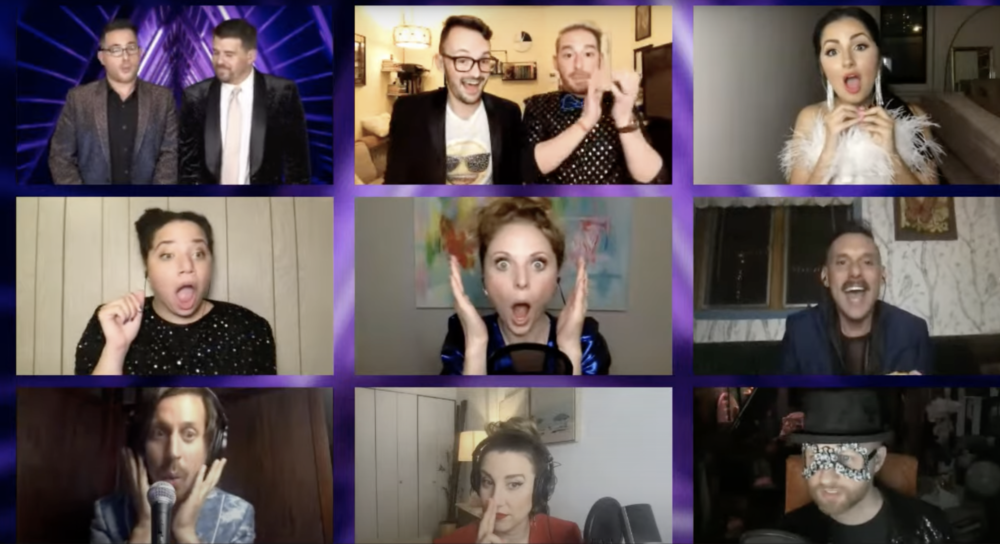By JK Clarke. . .
America’s socio-political relationship with the hallucinogenic/psychedelic drug Lysergic Acid Diethylamide—commonly known as LSD or Acid—is a complicated and often confusing one. Not discovered until 1938 by a Swiss chemist, it was initially used in both psychiatric research and patient treatment. As awareness of its effects grew, it began to be used as a recreational drug, one that fueled arts and music movements of the 1960s, leading to its criminalization and a mythology of sorts surrounding its impact on individuals and society. Today it has come full circle, now being investigated for its potential, in microdoses, to treat severe depression as well as other debilitating and heretofore untreatable psychiatric disorders. As part of that burgeoning respect for the drug, the new musical, Flying Over Sunset—playing at Lincoln Center’s Vivian Beaumont Theater through February 6—explores the early days (1950s) of this often magical drug by three noteworthy personalities of the era.
Even though it’s fairly well documented that movie icon Cary Grant, novelist Aldous Huxley and journalist/politician Clare Booth Luce all experimented with LSD, there’s nothing to suggest that the three tripped together, or even that they were close friends. However, that’s Flying Over Sunset’s odd and improbable premise. There’s no reason for it, but apparently it was story writer James Lapine’s brainchild, so he just went with it. Was he tripping? Who knows, but that’s the most logical explanation for why it was concocted. For a (presumably) sober audience, it’s a tough hill to climb.
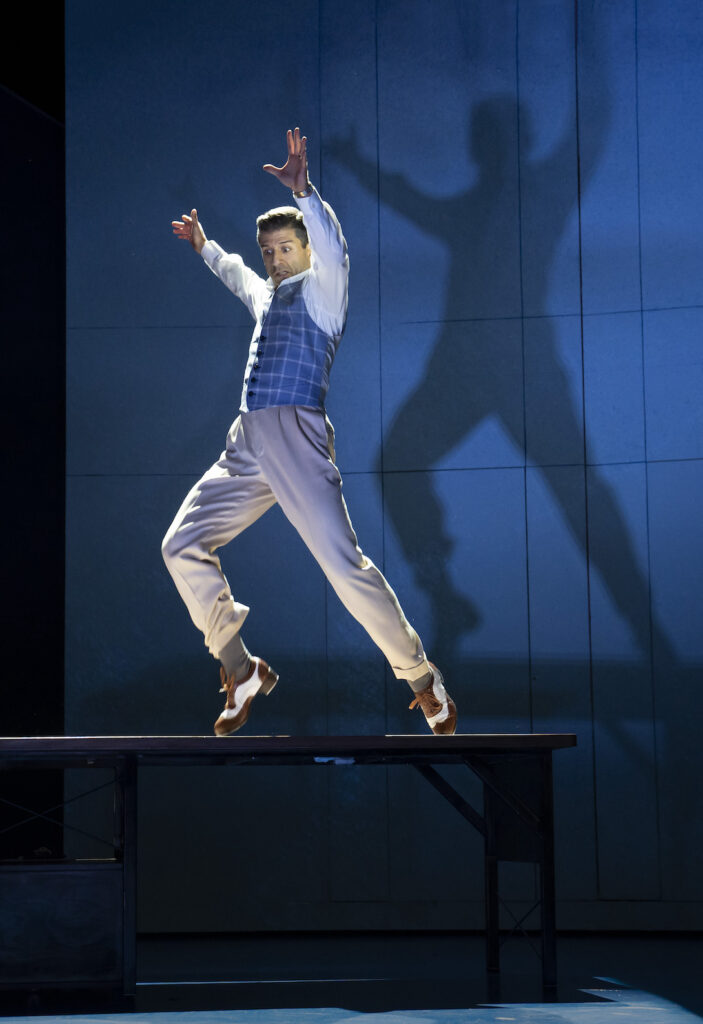
Flimsy premise notwithstanding, there are some lovely elements of this story of four “friends” who decide to go to Luce’s Malibu beach house and spend the day flying. All had used the drug to explore their inner-consciousnesses in the past, but they decide their combined experience might prove fruitful. We get a glimpse of some of their prior trips: Cary Grant (a terrific Tony Yazbeck), initially reluctant, has a breakthrough in his therapist’s office, finding himself tap dancing with his younger self, dressed as a young girl, as he performed in his younger, dance hall days in England. This is a bit problematic because the myth of LSD is that it causes one to see things that aren’t there, which almost universally isn’t the case, except in extreme dosages. Usually the trip just provides an enhancement of what already exists: colors, sounds, thoughts or emotions. Nonetheless, the tap performance between Yazbeck and Grant’s hallucination, the marvelous Atticus Ware as young Archie Leach (Grant’s real name) is extraordinary and exciting—a showstopper that makes up for the rest of the production’s shortcomings.
For Huxley’s early trip we see him marveling at the “world’s biggest drugstore,” a beautifully appointed Rexall in 1950s Hollywood and the myriad creams, deodorants and the like it features. Thanks to Beowulf Boritt’s utterly magnificent sets (some of his best work to date), it’s easy to imagine Huxley’s amazement, especially as murals seemingly come alive. Played and sung charmingly by Harry Hadden-Paton (My Fair Lady) Huxley’s anxieties melt away as he stares, awed by the world. With music by Tom Kitt and lyrics Michael Korie, Flying Over Sunset is beautifully scored, though without any particularly memorable numbers and several that are just a tad too long.
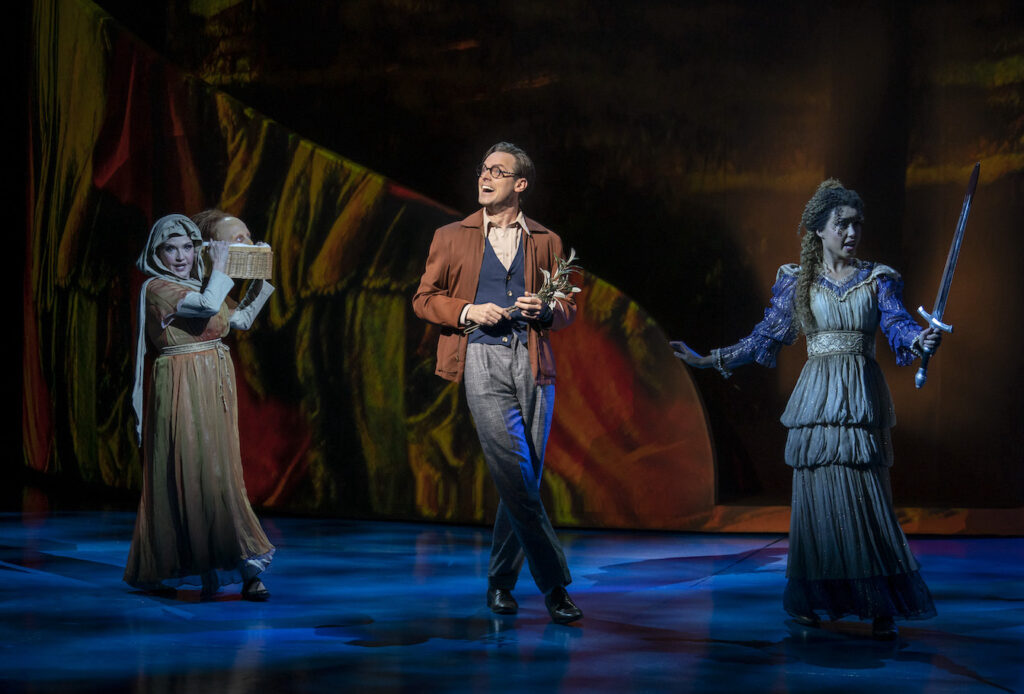

In the play’s second act, the three (plus a psychiatrist friend) gather at Luce’s (Carmen Cusack, nailing the blasé 50s society intellectual quite well, but with little to make her performance stand out), they “travel” together, despite Grant’s reluctance and uncertainty. And like many encounters with hallucinogens, a relatively innocuous event (in this case the men being caught in a minor riptide, only to be rescued by Grant) turns out to carry with it meaning and depth it would not otherwise have. The fact is, it’s rather hard to experience the emotions of someone tripping if you’re not, and that makes the story even more difficult to connect with intimately—though that’s exactly what we’d hope to experience in a show like this. We just don’t.
Flying Over Sunset. Through February 6 at Lincoln Center’s Vivian Beaumont Theater. www.flyingovesunset.com
Photos: Joan Marcus


